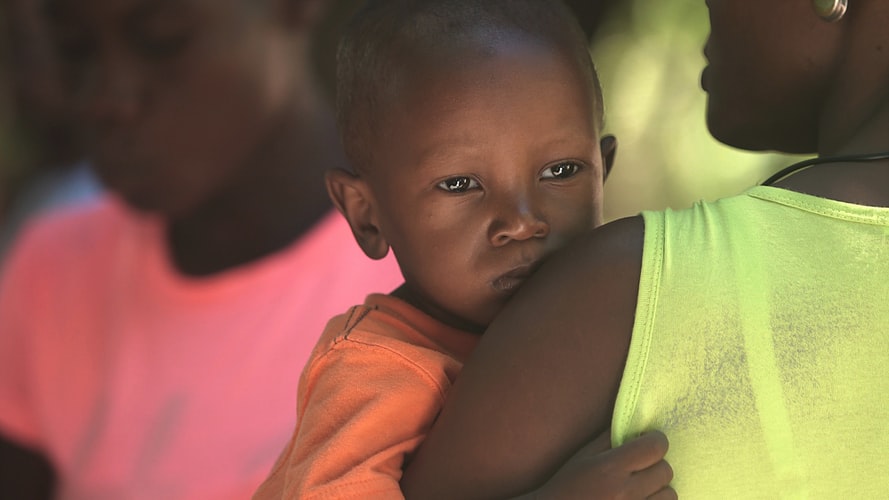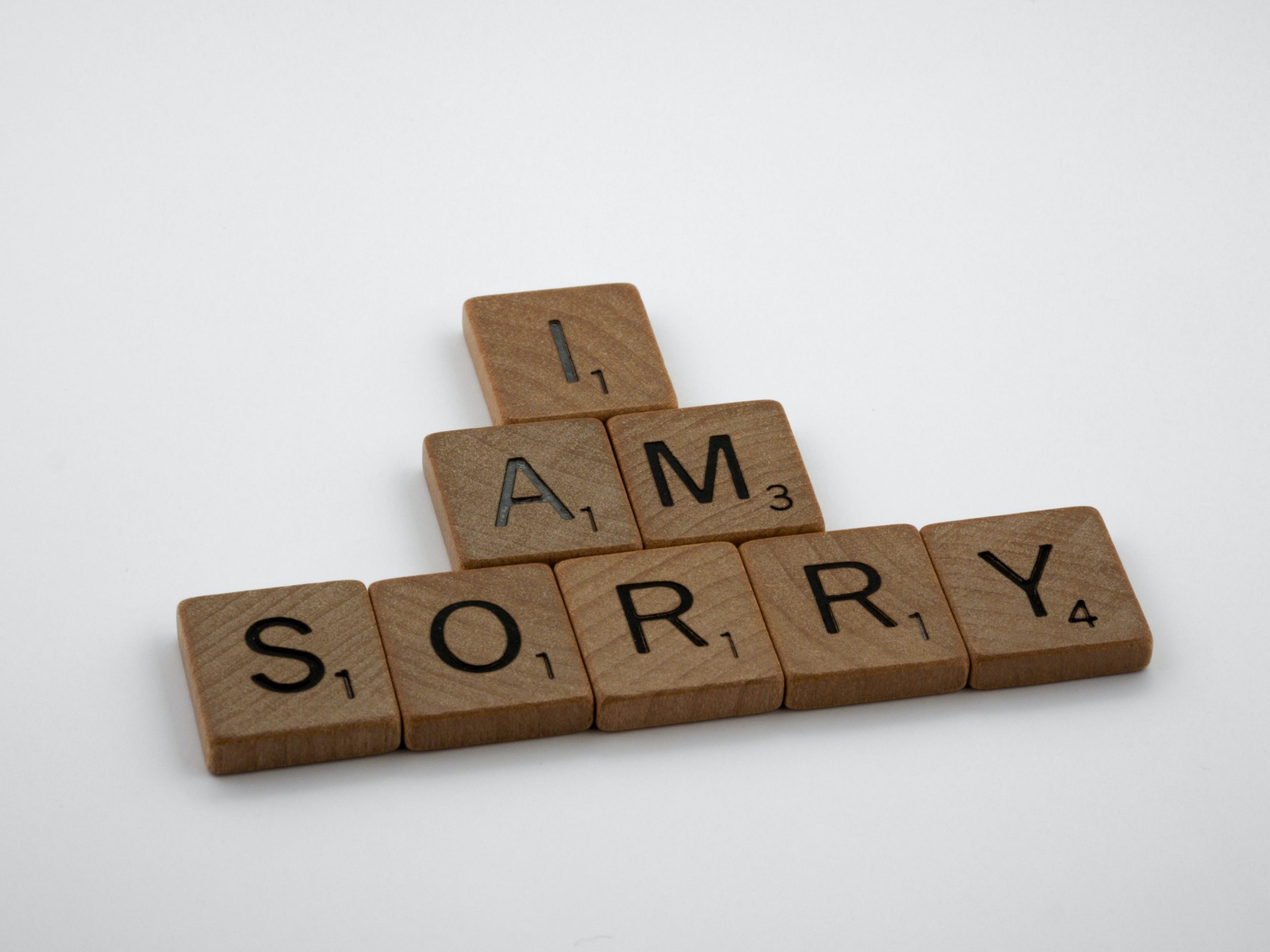Being a parent is difficult. Nobody really teaches you how to be one, you learn on the job. As adults, we understand this (hopefully), but you know who doesn’t understand? Your young children! When they are young, they think you are the most wonderful thing that happened to them, then they start to grow up and they have thoughts and opinions. Then they have dreams that are different from your dreams for them. They also realize that you make mistakes. It becomes clear that mommy and daddy are human and are not always right. If you can be honest with yourself, you can accept that this is true. The acknowledgment of making a mistake can make a big difference for your children, creating a bridge to strengthen your relationship. But you know who has a really hard time admitting their mistakes? African parents!
Okay, maybe not all of them. I’m sorry to be that blunt. If you are an African parent reading this, please read till the end. It is written in the love I have for African families and how much I hope we can bridge that gap between parents and kids especially because both come from two different worlds. Don’t worry, I’ll write one for your kids next week (subscribe to get it in your email).
As humans, we are made of various parts, the physical, emotional, mental, and spiritual. Let’s think of parenting all these parts to look something like this:
Physical – Providing a house to live in, food, money for school, etc. Being physically around when the kids are growing up.
Emotional – How you respond to your kids and how you manage their response to situations that happen around them. Things you do with them that they remember as “good times” not just because you were physically with them, but also because you were present in the moments with them.
Mental – Listening to them, having conversations with them that build their knowledge on self, relationships, the world, and their future. Teaching them skills to help them deal with the challenges life bring such as mean kids, disappointments, stress, discrimination, racism, etc.
Spiritual – Helping them to develop reliance on God, teaching them about the Bible, instilling a godly response to situations that arise. This includes (but is not limited to) having a spiritual community such as church.
Note: These descriptions are not exhaustive and some of these aspects intertwine because we can’t separate each part of ourselves.
Holistic parenting involving all parts requires the parent to be reflective, constantly asking oneself how he/she can be a better parent. This is a parent who is growing with their kids rather than someone who uses the same tactics they used when their first child was 5 years old.
My main reason in breaking this down is so that as a parent, you can see where you excel and where you have challenges. We understand that no parent is perfect, but if you can’t see that you are not perfect, your children will find it really difficult to have a meaningful relationship with you.
Due to African history of colonization with African people being stripped of their possessions and other reasons including those discussed here and here, many of today’s African parents emphasize the physical needs for their kids and neglect other needs. Although there may also be an emphasis on spirituality, there might not be teaching on how to have a relationship with God. I mean taking your children to a faith community and telling them to pray does not actively teach them what the scriptures say, how to apply it in the home and beyond, and why it is important.
Unfortunately, trying hard in one area (physical needs) can make someone believe they have done everything they can, and their children are still unhappy or aren’t doing what they (the parent) want. This misses the point in that the child still has unmet mental and emotional needs and sometimes they feel like the parent is not listening to them or worse off, they don’t even think they can bring it up to the parent because the parent will down-play it saying it is not really an issue.
Parenting older children
You may be reading this and thinking, my children are grown, this doesn’t apply to me. Actually, this applies even more to parents of older children. When kids become teenagers, they begin searching for their identity separate from their parents. In their late teenage years and beyond, the struggle for independence and respect as an adult becomes even stronger. For an African parent, this can be extremely difficult because of this hierarchy of “I’m the parent, you are the child,” “when I was growing up, we would never talk back to our parents,” etc.
My response to that is the fact that your parents raised you in a particular way doesn’t mean that it worked out perfectly for you, does it? Moreover, it is evident that times have changed and if you are living in the U.S., cultures have drastically changed. Your children are your seeds, and they are their own individuals. You have the first 16 (or so) years of their lives to instill whatever you want to teach them and then you trust that you did your best. The rest of their lives, you can influence, support, and advise them, but not micro-manage them. You are no longer in control.
Negative consequences on the children
There are consequences to teenage and adult kids not feeling listened to and restricted by their parents. These are just three broad ones:
- Mental disorders such as depression, anxiety, drug abuse – I’ve seen depression and anxiety frequently among my immigrant clients who are university students. The more they feel stuck or bound by their parent’s rules, their level of depression increases. I’ve seen them lack motivation to do anything, which leads to them failing their classes. The pressure from their parents for them to be successful contributes to them being unsuccessful. This can lead to them increasing substance use to numb their pain. Unfortunately, it can even lead to some threatening to take their own lives (suicide). The worst part is when the parent accuses them of being the reason for their misery without recognizing the role that they, the parent, is playing in it.
- Separating from one’s parents and culture – Another possibility is that the child can decide that once they are of age, they will stay away and never let their parents in their mental and emotional lives. They will not rely on their parents for anything except maybe for physical support when needed. Some of them make conscious or unconscious vows not to marry within their culture.
- Trust me, many children don’t want to separate from you or their culture. Many of them like their culture and they love their parents which is why this is really hard for them, but they don’t see any other choice.
- Issues interacting with their larger environment – How you are with your kids affects how they are in the world. For example, if you have lived your whole life saying, “yes ma” and then all of a sudden you go to work, do you expect to automatically start saying, “That’s a good point, but I was also thinking about this aspect…?” It doesn’t work that way, your brain has been wired to think “respect your elders means saying Yes without questioning.” So, that’s what you do, even when you have questions. Do you know what this can do to someone at a job? It can keep them stagnant while they watch others come and climb the ladder because they are speaking up and asking for what they want.
There is hope
My goal here is not to discourage you or make you feel guilty or hopeless. On the contrary, I am just shedding light to an issue that keeps coming up. The good news is that in God’s loving and gracious ways, God created us to be malleable. Throughout our lives, the brain is able to reorganize itself and form new connections adapting to new experiences. The scientific term for this is neuroplasticity. This means no matter how old you are, you can grow and change. Nobody is stuck! If you weren’t the best parent, you have not damaged you kids, they can learn new things and so can you. Isn’t that amazing?
Tips to improve your relationship with your children
Now you know that we can all change, here are some things you can do:
- Be introspective – While reading this post, think about yourself and your relationship with your son or daughter. What do you want to be better? Continue this self-reflection.
- Recognize that your children have opinions, thoughts, and feelings separate from you and they are not wrong for having them
- Encourage more open conversations with your children
- Listen to what they are telling you without taking it personal
- Accept your mistakes and apologize
- Let them make their mistakes, they will learn from them
- Create some separation between you/your wants and your kids/their wants. You are different people!
- Let your older children live their lives the way they see fit. You instilled your best in them, now is their time to figure things out.
- Make yourself available for them to come to you when they need support – learn how to be a safe person
- Have your own support and develop your own skills to manage your distress
Okay, that was a lot and I was just talking to the parents. Look out for next week’s post on how teenage and adult children can manage their relationships with their parents. And don’t forget to subscribe!




5 Responses
This is a good one!
African adult children complain their parents donot understand them and parents talk about the children being completely about themselves–the me, I generation. How do you reconcile these?
This is a good and challenging question that I will touch on soon. Sorry I had to put a pause on the relationship series while we navigate recent events from police brutality. Relationship series is to be continued!